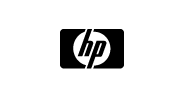Introduction to installing and managing Microsoft Exchange Server 2007 (MOC 5047)
Course number HF342S
Delivery method
Remotely assisted instructional learning (RAIL)
Instructor-led training (ILT)
Onsite dedicated training (OST)
Course overview
Students will learn how to install Exchange Server 2007 and manage routing, client access, and the backup and restore of databases. They will also learn how to manage addressing and recipient objects such as mailboxes, distribution groups, and contacts.
Prerequisites
This course requires that students meet the following prerequisites:
- Experience using these tools and applications:
- NTBackup command
- NSLookup command
- Windows Explorer
- Microsoft Management Console (MMC)
- Active Directory Users and Computers
- Active Directory Sites and Services
- Internet Information Services (IIS) Admin
- Outlook - Working knowledge of Windows server operating system. For example, how storage is configured, basic backup and restore techniques, and what a client/server application interaction means
- Working knowledge of network technologies. . For example, what Transmission Control Protocol (TCP/IP) and Domain Name System (DNS) d- and how to use them, basic routing concepts (Wide Area Networks (WAN) vs. Local Area Network (LAN) router vs. switch vs. hub)
- Working knowledge of Active Directory. For example, how user objects are managed, what is stored in Active Directory partitions, basic architectures (domain, forest, sites, etc.), and how domain controllers are managed. Also, site and site connector configuration, schema and configuration partitions, and Global Catalogs
- Conceptual understanding of e-mail technologies For example, that Simple Mail Transport Protocol (SMTP) is a protocol used for e-mail and the differences between transport protocols and client access protocols (Post Office Protocol (POP), Internet Access Message Protocol (IMAP), SMTP)
Audience
IT Professionals, IT generalists, and help desk professionals wh- want to learn about Microsoft Exchange Server 2007 are the audience for this course. IT Professionals, IT generalists and help desk professionals should have at least 3 years experience working in the IT field—typically in the areas of network administration, help desk, or system administration. No experience with Exchange Server is necessary.
Benefits to you
After completing this course, students will be able to:
- Describe how Exchange Server 2007 and Active Directory work together
- Install Exchange Server 2007
- Configure Mailbox Server roles
- Manage recipient objects
- Manage e-mail and address lists
- Manage client access
- Manage Messaging Transport
- Manage availability, backup and recovery
- Maintain the message system
Next steps
This course will help the student prepare for the following Microsoft Certified Professional exam:
- Exam Exam 70-236: Implementing, Troubleshooting and Maintaining a MS Exchange Server 2007 Infrastructure
Course outline
Module 1: Overview of Exchange and Active Directory
Lessons
- Review of Active Directory
- Introduction to the Integration of Active Directory and Exchange Server 2007
Lab: Overview of How Active Directory and Exchange Server 2007 Work Together
- Discussion: Explaining How Exchange and Active Directory Work Together
Module 2: Installing Exchange Server 2007
Lessons
- Introduction to the Exchange Server 2007 Server Roles
- Installing Exchange Server 2007
- Completing the Exchange Server 2007 Installation
Lab: Installing Exchange Server 2007
- Preparing the Environment for an Exchange Server 2007 Installation
- Installing Exchange Server 2007 Client Access Server and Hub Transport Server Roles
Lab: Verifying an Exchange Server 2007 Installation
- Verifying an Exchange Server 2007 Installation
Module 3: Configuring Mailbox Server Roles
Lessons
- Overview of Exchange Server 2007 Administration Tools
- Implementing Mailbox Server Roles
- Managing Public Folder Databases
Lab: Configuring Mailbox Servers
- Configuring Storage Groups and Database Files
- Configuring a Public Folder and Store Referrals
Module 4: Managing Recipient Objects
Lessons
- Managing Mailboxes
- Managing Other Recipients
- Overview of Managing Public Folders
Lab: Managing Recipient Objects
- Modifying Existing User Mailboxes
- Configuring New Mailboxes and Mail-Enabled Objects
- Managing Resource Mailboxes
- Managing Mailbox Removal
Module 5: Managing E-Mail Addresses and Address Lists
Lessons
- Configuring E-Mail Address Policies
- Configuring Address Lists
- Overview of Bulk Recipient Management Tasks
Lab: Managing E-Mail Addresses and Address Lists
- Managing E-Mail Address Policies
- Managing Address Lists
- Performing Recipient Bulk Management Tasks
Module 6: Managing Client Access
Lessons
- Implementing Client Access Servers
- Implementing Client Access Features
- Implementing Outlook Web Access
- Introduction to Implementing Mobile Messaging
Lab: Managing Client Access
- Managing Mobile Device Connectivity
- Managing Outlook Web Access
Module 7: Managing Messaging Transport
Lessons
- Introduction to Message Transport
- Implementing Message Transport
Lab: Managing Messaging Transport
- Troubleshooting Local Message Delivery
- Troubleshooting Remote Message Delivery
- Troubleshooting Message Transport
Module 8: Managing Availability, Backup and Recovery
Lessons
- Implementing High-Availability for Mailbox Servers
- Managing a Backup Solution
- Managing a Recovery Solution
Lab: Managing Backup and Recovery
- Restoring Data using the Recovery Storage Group
After completing this module, students will be able to:
- Implement high-availability for mailbox servers
- Manage a backup solution
- Manage a recovery solution
Module 9: Maintaining the Messaging System
Lessons
- Overview of Implementing Change Management
- Overview of Updating Exchange Servers
Lab: Maintaining the Messaging System
- Determining the Information Necessary for Change Implementation
- Upis u radnu knjižicu: ne
- Certifikat: ne
- Uvjerenje: ne
- In-house: ne
- Svjedodžba: ne
- Diploma: ne
